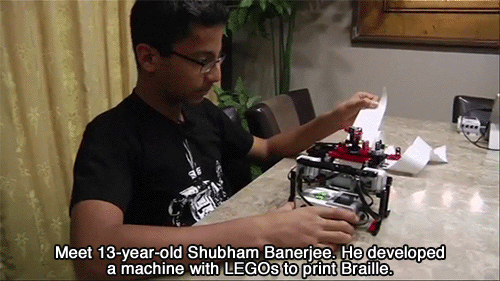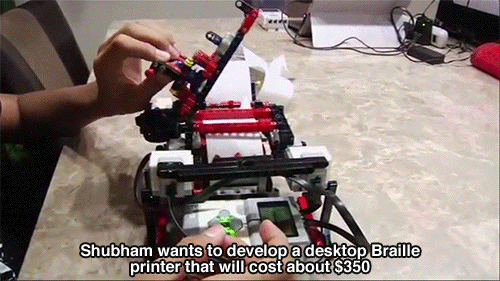Apple Yanks Drone-strike-tracking App From App Store
Apple yanks drone-strike-tracking app from App Store

The app, Metadata+, was created by Josh Begley, research editor for The Intercept; Begley changed its name from Drones+ after it was rejected as “objectionable” by Apple five times.
At the time, an Apple employee told Begley that the app would never be approved if it focused on US drone strikes, but would have a chance if he “broadened his topic” because “there are certain concepts that we decide not to move forward with, and this is one.”
Metadata+ never the word “drone” – this may be how it snuck past the Apple censorship board. But seven months later, Apple has unceremoniously yanked it.
Apple: a giant corporation that gets to decide which journalism you’re allowed to access with apps on your device, and whose lawyersrepeatedly told the US government that changing this situation should be a felony punishable by five years in prison and a $500,000 fine.
Ecosystems work great – they just fail miserably. The important part of a benevolent dictatorship isn’t the “benevolent” – it’s the “dictatorship.”
Read the rest
More Posts from Dotmpotter and Others
This came across my desk this morning in the course of philanthropic research, and it’s a fascinating portrait primarily of the head of a charitable organization that serves his own community (the blind and visually impaired) but also a mixed-message reconstruction of a man who mysteriously bequeathed $125M – fifteen times the charity’s operating budget – to an organization that never knew his name.
(A more-or-less transcript of the podcast is also available below the player.)
Governments aren’t doing much to halt global warming but there is hope in the business world. Here are the companies that are facing up to the challenge.
Not my usual climate post. But, BMW is #1.




The Moon Parka - A jacket made of synthetic spider silk
Remember the Japanese biomaterials company Spiber? In 2013, they presented a cocktail dress made of Qmonos (from the Japanese word kumonosu meaning ‘spider web’), their present 11-year-10-design-iterations-and-656-gene-synthesis synthetic version of stronger than steel and more flexible than nylon lightweight spider silk.
Snip from geek.com:
The end result of all that research is a method for producing artificial spider silk through a fermentation process using bioengineered microorganisms to produce the silk proteins. A real spider can only produce so much silk, but an engineered cell that does nothing but spit out silk proteins can be used to scale production up quickly.
Now they presented in collaboration with The North Face a new prototype called The Moon Parka, which is currently touring North Face stores across Japan. It’s intended to show that practical applications of spider silk are possible (cost is now 1/53,000 of what it was in 2008). Spiber aims to deliver the final product next year. Presumably only in Japan. But fingers crossed for a worldwide rollout at reasonable prices.
Watch their promo-launch video below:
[North Face x Spiber] [Spiber] [picture by North Face]

Today I am drawing Christmas card designs. For robots. #christmascard #christmas #xmas #merrychristmas #robot #robotart #art #illustration #instaartist #instaart #jonturner

A good way to remember the human bones in the body. Dope pic
www.learninghumananatomy.com

As a psychologist, particularly one of a therapeutic bent, I never felt much like a scientist. I mean, we’re fluffy bunnies in the world of “proper” science, no matter how much we talk about epistemological theory or Feyerabend’s ideas or squeeze gratuitous Greek letters and geometry style diagrams into our work.
As a lingerie professional, however, I’m sometimes quite scared about how little the industry seems to know about what it means to be scientific.

This is just great.



Teen Starts Company To Make Low-Cost Printers To Help Blind People
SANTA CLARA, Calif. (AP) — In Silicon Valley, it’s never too early to become an entrepreneur. Just ask 13-year-old Shubham Banerjee. The California eighth-grader has launched a company to develop low-cost machines to print Braille, the tactile writing system for the visually impaired. Tech giant Intel Corp. recently invested in his startup, Braigo Labs.
For behind this incredible technology go here.
The astonishing story of Xavier Plassat, a French friar who has fought slavery for decades in the Brazilian Amazon, via Vanity Fair.



READ the abolitionist’s compelling tale here that brought him to the frontlines of 21st century slavery.
Stephen Hawking: robots could give us all material abundance, unless rich people hoard all the wealth

In a Reddit AMA, the eminent physicist warns that while increasing automation could give us a world of “luxurious leisure,” that “most people can end up miserably poor if the machine-owners successfully lobby against wealth redistribution.”
Paging Thomas Piketty, your ride is here.
Read the rest
-
 dotmpotter reblogged this · 9 years ago
dotmpotter reblogged this · 9 years ago -
 urbanoceanix reblogged this · 9 years ago
urbanoceanix reblogged this · 9 years ago -
 davetheinverted reblogged this · 9 years ago
davetheinverted reblogged this · 9 years ago -
 bindiboo reblogged this · 9 years ago
bindiboo reblogged this · 9 years ago -
 spaceraptor reblogged this · 9 years ago
spaceraptor reblogged this · 9 years ago -
 spaceraptor liked this · 9 years ago
spaceraptor liked this · 9 years ago -
 kylokeithrennie liked this · 9 years ago
kylokeithrennie liked this · 9 years ago -
 widdily-wee reblogged this · 9 years ago
widdily-wee reblogged this · 9 years ago -
 juliekassab reblogged this · 9 years ago
juliekassab reblogged this · 9 years ago -
 allanonkisigar reblogged this · 9 years ago
allanonkisigar reblogged this · 9 years ago -
 yearningforthesummerlands reblogged this · 9 years ago
yearningforthesummerlands reblogged this · 9 years ago -
 yearningforthesummerlands liked this · 9 years ago
yearningforthesummerlands liked this · 9 years ago -
 kaiamar liked this · 9 years ago
kaiamar liked this · 9 years ago -
 turtlezen42 reblogged this · 9 years ago
turtlezen42 reblogged this · 9 years ago -
 turtlezen42 liked this · 9 years ago
turtlezen42 liked this · 9 years ago -
 godisprisonbutigotpardoned liked this · 9 years ago
godisprisonbutigotpardoned liked this · 9 years ago -
 tetchim0n reblogged this · 9 years ago
tetchim0n reblogged this · 9 years ago -
 tetchim0n liked this · 9 years ago
tetchim0n liked this · 9 years ago -
 draconicrose reblogged this · 9 years ago
draconicrose reblogged this · 9 years ago -
 draconicrose liked this · 9 years ago
draconicrose liked this · 9 years ago -
 tygenco reblogged this · 9 years ago
tygenco reblogged this · 9 years ago -
 prionailurus reblogged this · 9 years ago
prionailurus reblogged this · 9 years ago -
 prionailurus liked this · 9 years ago
prionailurus liked this · 9 years ago -
 lpbythebulb reblogged this · 9 years ago
lpbythebulb reblogged this · 9 years ago -
 quincyrose reblogged this · 9 years ago
quincyrose reblogged this · 9 years ago -
 sapphic-luminosity reblogged this · 9 years ago
sapphic-luminosity reblogged this · 9 years ago -
 shiftergirlslappy reblogged this · 9 years ago
shiftergirlslappy reblogged this · 9 years ago -
 shiftergirlslappy liked this · 9 years ago
shiftergirlslappy liked this · 9 years ago -
 stevonicus reblogged this · 9 years ago
stevonicus reblogged this · 9 years ago -
 joanwaterhouse liked this · 9 years ago
joanwaterhouse liked this · 9 years ago -
 zahracusdottir reblogged this · 9 years ago
zahracusdottir reblogged this · 9 years ago -
 zahracusdottir liked this · 9 years ago
zahracusdottir liked this · 9 years ago -
 dollo liked this · 9 years ago
dollo liked this · 9 years ago -
 xipiti reblogged this · 9 years ago
xipiti reblogged this · 9 years ago -
 tetrisjenga liked this · 9 years ago
tetrisjenga liked this · 9 years ago -
 infochores liked this · 9 years ago
infochores liked this · 9 years ago -
 crippledgiraffes-thoughts reblogged this · 9 years ago
crippledgiraffes-thoughts reblogged this · 9 years ago -
 mckitterick reblogged this · 9 years ago
mckitterick reblogged this · 9 years ago -
 mckitterick liked this · 9 years ago
mckitterick liked this · 9 years ago
